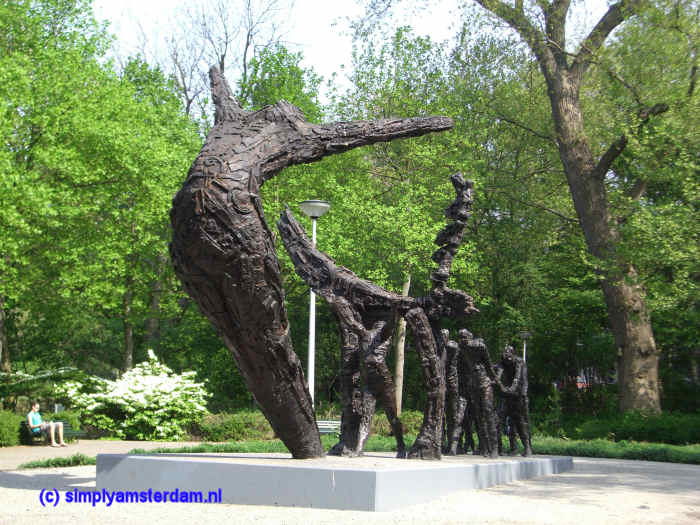The Netherlands abolished slavery on July 1, 1863 and used to be one of the important slave trading nations before that time.
Holland had colonies in South America (Suriname, which gained independance in 1975) and in the Caribean, 6 small islands: Aruba, Bonaire, Curacao and Saba, Sint Eustatius and Sint Maarten.
These six islands have their own executive bodies, but are officially part of the Kingdom of the Netherlands.
As slaves used to be transported from Africa to the colonies, after the abolotion of slavery Holland has a minority with black, African roots.
In 1975, Suriname became independent, and many inhabitants decided to keep the Dutch nationality and move to Holland, particularly to Amsterdam, especially to Amsterdam South-East. This part of Amsterdam is still the most 'African/black' neighbourhood of the city.
The Kwaku Festival, one of the large events in Amsterdam, is held in this part of Amsterdam every year.
Much of the richess of Amsterdam of the Golden Age derives from slave trading, and trading of goods from the plantations, the production of which depended on slave labour.
Only since the 1990's, the commemoration of the abolition of slavery in the Netherlands has become a yearly event. This is held every year at the Slavery Monument in Oosterpark (park in the East part of town).
On this page is a list of places and other things that can be connected to Amsterdam's African/black history.

National Slavery Monument in Oosterpark